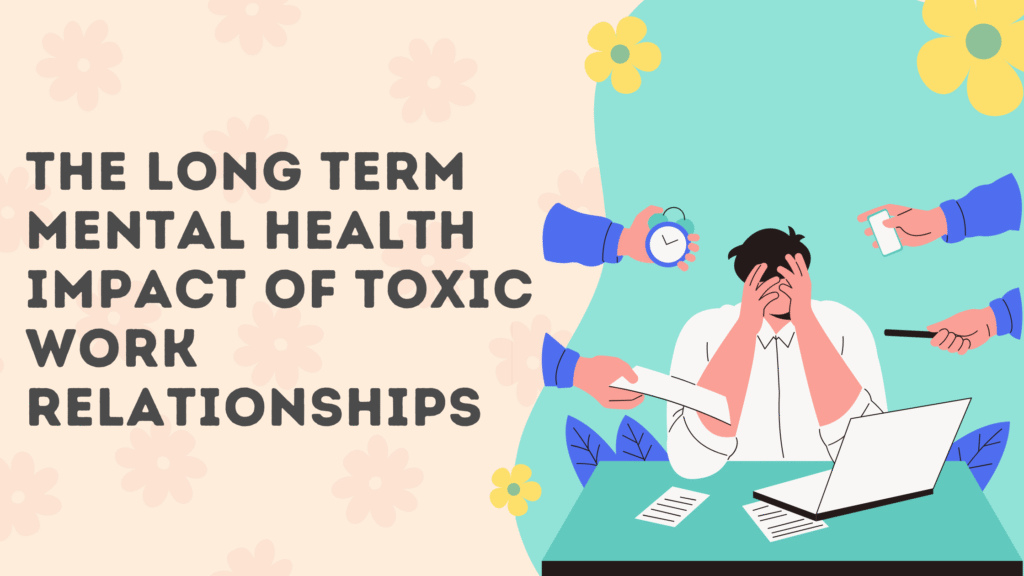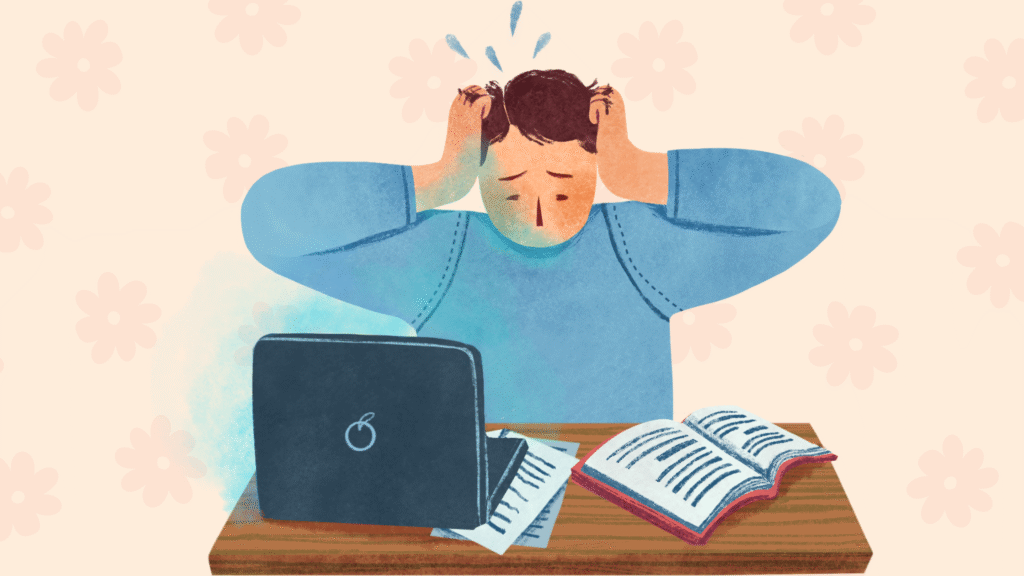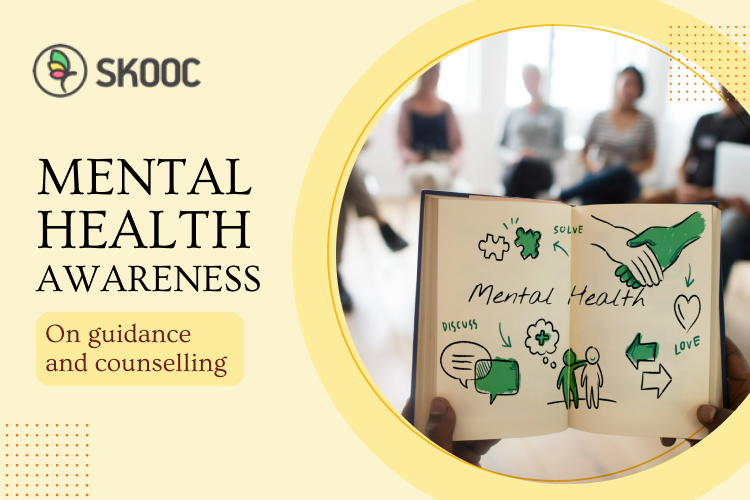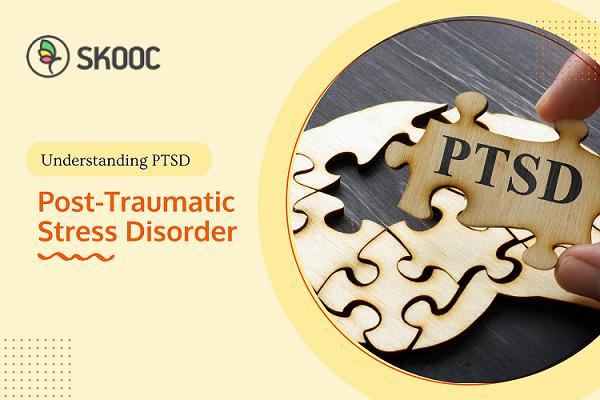
Have you ever dreaded logging into work, felt anxious before a meeting, or found yourself constantly questioning your abilities? You’re not alone. Toxic workplaces are more common than we’d like to admit, and their effects go far beyond a bad day at the office. They seep into your mental health, relationships, and even your sense of self-worth. It’s often not a one-time incident but a slow buildup that can feel overwhelming.
According to the World Health Organization (WHO), 15% of working-age adults experience mental health disorders, many of which are worsened by workplace stress. Stories of employees breaking under toxic work environments aren’t just headlines—they’re a reflection of a larger issue in today’s corporate culture. From extreme micromanagement and workplace bullying to unrealistic expectations and a lack of recognition, toxic work cultures create lasting psychological wounds.
And the worst part? Many people don’t realize how deeply a negative work environment can impact their long-term well-being. Anxiety, burnout, self-doubt, and even workplace-induced trauma can shape how we see ourselves and our careers for years to come.
If you’ve ever found yourself asking, “Why am I so drained after a day at work?” or “Why does this feel like it’s never going to end?”—this blog is for you. Let’s dive into why toxic workplaces affect our mental health in such profound ways.
What Makes a Workplace Toxic?

Not every stressful job is a toxic one, but when workplace stress becomes relentless, emotionally draining, and mentally exhausting, it’s time to take a closer look. A toxic work environment isn’t always about overt hostility—it can manifest in subtle ways that gradually wear down your confidence, motivation, and well-being.
Sometimes it’s not a specific incident but a collection of small daily frustrations that build up. Let’s take a closer look at the tell-tale signs of a toxic workplace:
Signs of a Toxic Workplace
Manipulative or Abusive Leadership
A workplace’s culture is shaped by its leadership. When managers use fear, control, or blame-shifting as tools, it creates an atmosphere of stress and instability. Rather than empowering employees, such leadership leaves workers questioning their every move. This constant state of uncertainty can drain your energy and lead to emotional exhaustion.
In these environments, it’s common to feel like you’re constantly walking on eggshells, unsure when the next “performance review” will become a verbal attack rather than constructive feedback.
Gaslighting, Favoritism, and Micromanagement
Have you ever been told, “You’re overthinking it” when trying to express concerns about unfair treatment or workplace bullying? That’s gaslighting—a psychological tactic used to make you doubt your reality. Gaslighting isn’t just emotionally taxing; it’s also damaging to your self-esteem. You start to question if you’re just too sensitive or whether everyone else sees what’s happening, but is too scared to speak up.
Similarly, favoritism can be just as damaging. When certain team members are given special treatment or rewards while others are passed over, resentment builds. This fosters a toxic environment that stifles collaboration and healthy competition. Micromanagement, on the other hand, signals a lack of trust, leaving employees feeling suffocated and disempowered. Instead of motivating teams, it creates a sense of helplessness.
Unhealthy Competition and Workplace Harassment
A high-pressure work environment can sometimes push employees to excel. However, when this turns into toxic competition, it fosters division instead of teamwork. Employees might sabotage one another or withhold information just to get ahead. In a healthy workplace, employee engagement thrives when team members help each other succeed.
Workplace harassment, whether sexual, racial, or verbal, only exacerbates the problem. Toxic work environments often have a culture where this type of behavior is swept under the rug or dismissed as “just part of the job.”
Lack of Recognition and Unrealistic Expectations
A major red flag in toxic workplaces is when hard work is expected but never acknowledged. Employees who constantly put in extra effort without appreciation or growth opportunities often experience burnout, chronic stress, and low job satisfaction. They start to feel like they’re invisible, like no matter how much they give, it’s never enough. This persistent feeling of being overlooked can destroy a person’s sense of purpose and make them dread going to work.
How a Toxic Workplace Affects Mental Health
For many, work is more than just a paycheck—it’s a place where we spend a significant part of our lives. When that environment becomes toxic, it doesn’t just impact our daily routine; it begins to reshape how we see ourselves, our abilities, and our future. The effects of a toxic workplace go far beyond frustration or exhaustion. Over time, they can lead to serious mental health consequences that don’t just disappear when you clock out.
The most insidious part? The mental stress caused by toxic workplaces often continues to affect you long after you’ve left. It’s the feeling that something is fundamentally wrong, but you can’t quite pinpoint it. This lingering anxiety can follow you from one job to the next.
The Immediate Impact: Short-Term Mental Health Effects

Chronic Stress and Anxiety
A high-pressure work environment can push employees to be productive, but when stress is constant and overwhelming, it leads to heightened anxiety, panic attacks, and emotional exhaustion. You might find yourself always on edge, dreading emails or meetings, or feeling an underlying sense of unease even on weekends. It can feel like the weight of work follows you home, affecting your personal life and your mental well-being.
Some might even feel like they’re constantly “on alert” or unable to relax, fearing the next bad news or negative feedback.
Decreased Job Satisfaction and Motivation
When your hard work goes unnoticed, leadership is manipulative, or the work culture is toxic, motivation takes a hit. Over time, employee engagement drops, and tasks that once felt fulfilling start feeling meaningless. If you’ve ever thought, “What’s the point?” you’re not alone. These feelings of lack of recognition often lead to a dramatic decrease in job satisfaction, making it harder to find joy in the work you used to love.
The Deeper Wounds: Long-Term Psychological Impact

Workplace-Induced Trauma
Not all workplace stress fades with time—sometimes, it embeds itself into our psyche. Workplace-induced trauma happens when prolonged exposure to toxic work environments triggers emotional distress similar to PTSD. Studies have found that high-stress work situations can lead to symptoms like:
- Hypervigilance – Constantly feeling on edge, as if you’re waiting for something to go wrong. This heightened state of alertness can make you overthink every situation, from minor comments to email exchanges.
- Emotional Numbing – Losing interest in things you once enjoyed, both at work and in personal life. This can make it difficult to feel happiness or even excitement about things that would normally be fulfilling.
- Avoidance Behaviors – Hesitating to speak up in meetings, avoiding certain colleagues, or even feeling physically sick before work. These behaviors are often protective mechanisms, but they can make it harder to engage with the job and colleagues in a healthy way.
- Intrusive Thoughts & Flashbacks – Ruminating over past stressful work situations or replaying negative interactions in your mind. This constant rumination, much like flashbacks, can be debilitating, leading to levels of stress that seem impossible to escape.
Impact on Identity & Self-Worth: The Silent Erosion of Confidence
One of the most damaging aspects of toxic workplaces is how they chip away at self-esteem. Constant criticism, micromanagement, or workplace gaslighting can make even the most skilled professionals doubt themselves.
This gradual erosion of confidence can leave you wondering whether you’re capable of doing your job, even if you were once highly skilled and confident in your abilities. The emotional scars of working in such an environment can affect not only your work but your personal life as well.
Burnout & Cognitive Decline
Burnout isn’t just about being tired—it’s a state of complete mental and emotional exhaustion. Research shows that chronic workplace stress can lead to:
- Memory Issues & Brain Fog: Tasks that once seemed manageable become impossible to complete. You might forget important details or find yourself struggling to follow conversations at work.
- Difficulty Concentrating: Your mind is constantly preoccupied with workplace stress, leaving little room for focus or clarity.
- Decision-Making Struggles: Every choice feels overwhelming, and even simple decisions become paralyzing.
The long-term effects of such mental stress can be incredibly damaging, contributing to cognitive decline and a profound sense of emotional exhaustion that may feel impossible to overcome.
Breaking Free: How to Heal from a Toxic Work Relationship

Leaving a toxic workplace isn’t just about switching jobs, it’s about healing from the damage, reclaiming your confidence, and ensuring you don’t end up in the same cycle again. A toxic work environment can make you question your worth, doubt your abilities, and even impact your mental health long after you’ve left. So, how do you break free and move forward in a way that truly benefits you?
Separate Your Self-Worth from Toxic Experiences
One of the most harmful effects of a toxic job is how it seeps into your sense of self. Maybe you were made to feel incompetent, undervalued, or disposable. Over time, you may have internalized these messages, leading to self-doubt, imposter syndrome, and emotional exhaustion. But here’s the truth:
- Toxic workplaces thrive on dysfunction—not on your shortcomings.
- Being overworked and underappreciated doesn’t mean you’re not good enough.
- Your skills, talents, and potential are still intact—even if a bad workplace made you question them.
Start by reframing your experience. Recognizing this is the first step in regaining your confidence and sense of control.
Create an Exit Strategy (Even If You Can’t Leave Right Away)
If you’re stuck in a toxic job due to financial obligations or lack of immediate alternatives, having a plan to exit can help you feel less powerless. Consider these steps:
- Document everything. If you’ve faced workplace bullying, micromanagement, discrimination, or unethical behavior, keep records of emails, messages, or incidents in case you need them for HR or legal purposes.
- Build your network. Connect with professionals in your field, attend industry events, or reach out to mentors for guidance.
- Update your resume and LinkedIn profile. Highlight your skills and experience outside of your current toxic job.
- Look for better opportunities discreetly. Set up job alerts, research healthy work environments, and prioritize organizations known for strong employee well-being.
Finding a Healthier Work Environment
Once you leave, how do you make sure your next job isn’t just another toxic situation? Look for signs of a healthy work environment during your job search:
- Clear Work-Life Balance: Companies that respect boundaries, offer flexible work arrangements, and encourage time off.
- Transparent Leadership: Leaders who communicate openly, address concerns, and value employee input.
- Supportive Management: Managers who offer guidance, feedback, and opportunities for growth without micromanaging.
- Psychological Safety: A workplace environment where employees can speak up without fear of retaliation or ridicule.
- Low Employee Turnover & Employee Satisfaction: Research the company’s reviews on platforms like Glassdoor. High employee turnover rates often signal deeper issues.
Conclusion: Why This Conversation Matters
Toxic workplaces don’t just affect careers—they leave a lasting impact on mental health, self-worth, and overall well-being. Chronic stress, anxiety, burnout, and workplace-induced trauma are real consequences of environments that prioritize profit over people.
Yet, many people suffer in silence, believing that workplace toxicity is just part of the job. It’s not. A healthy work environment fosters respect, recognition, and balance, allowing employees to thrive rather than just survive. The more we talk about these issues, the more we empower individuals to set boundaries, recognize red flags, and seek workplaces that prioritize mental well-being.
Organizations, too, must take responsibility. Addressing toxic leadership, promoting inclusivity, and ensuring psychological safety aren’t just ethical choices—they’re essential for long-term success. Employees are not disposable, and their well-being should never be an afterthought.
If your workplace is draining you more than it’s supporting you, it’s time to rethink whether it deserves you at all.



